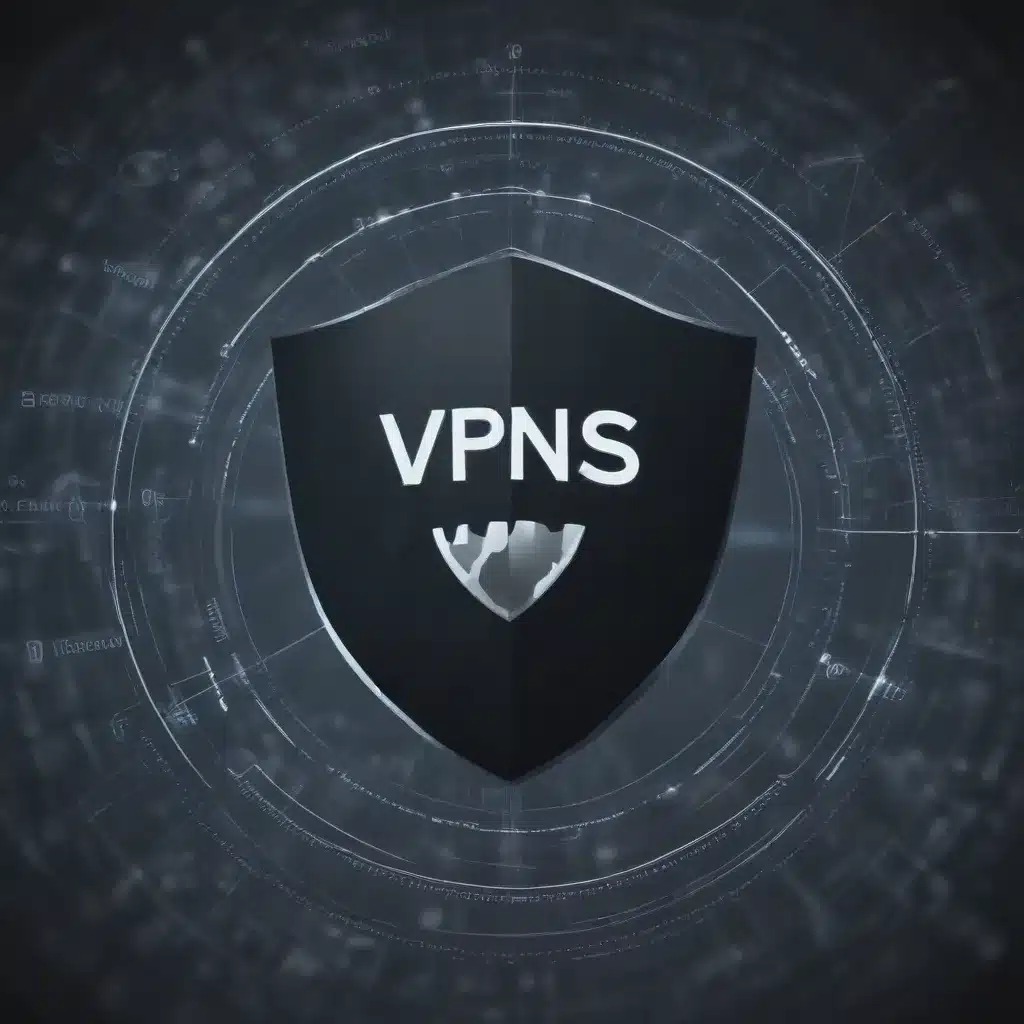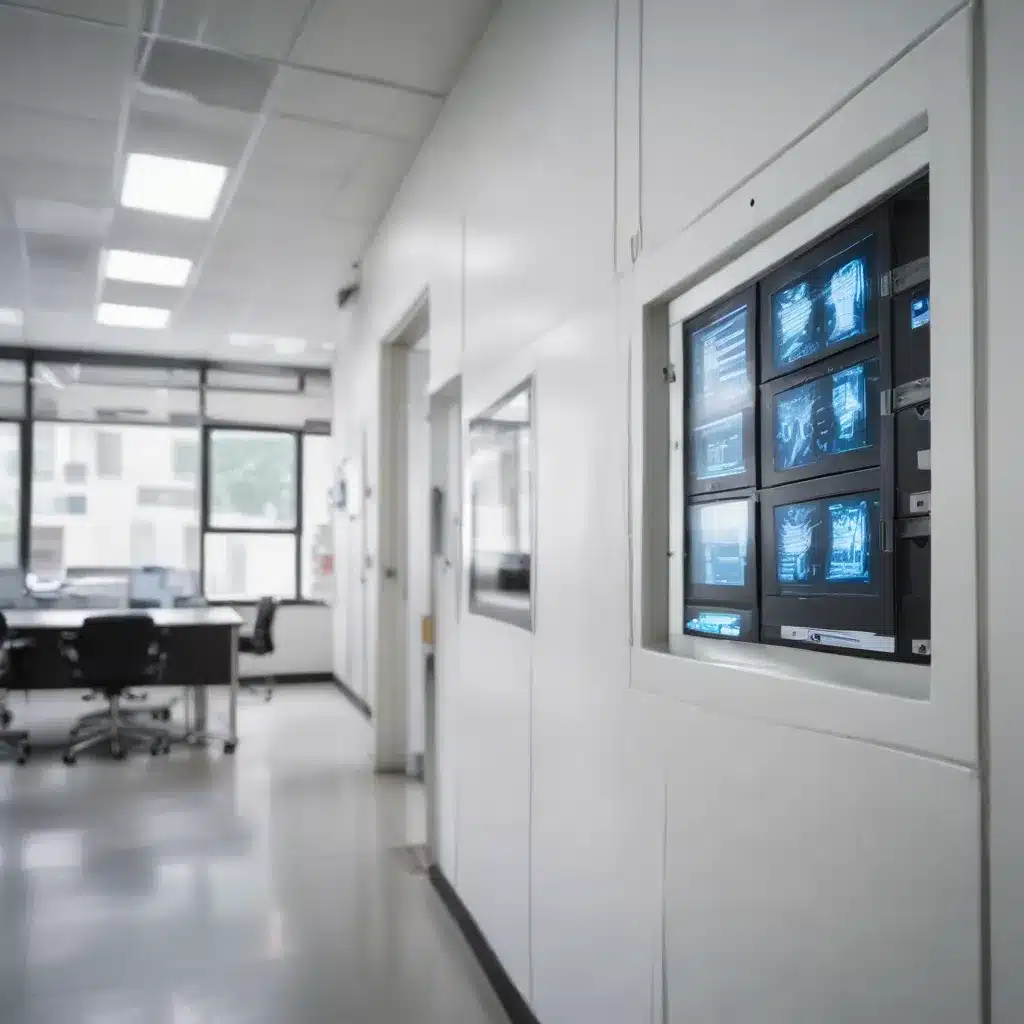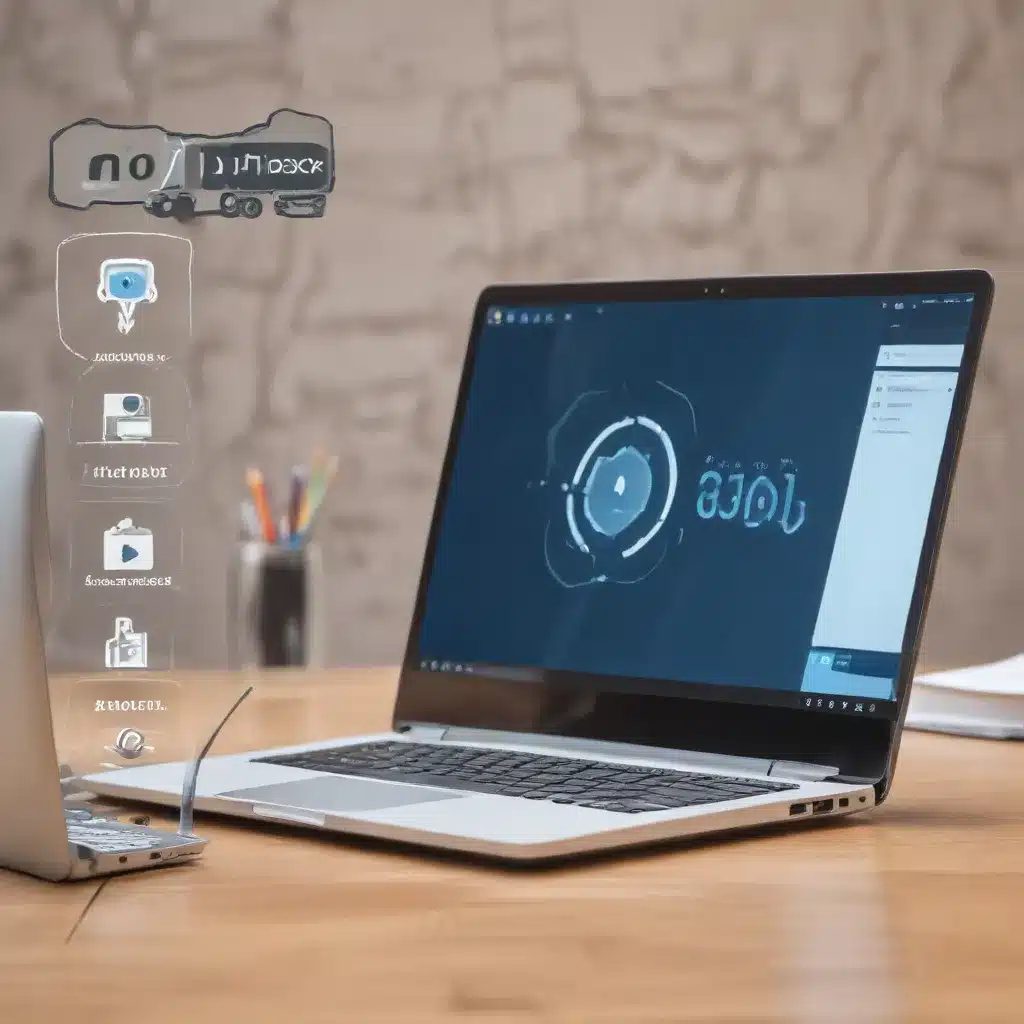Understanding the Fundamentals of Virtual Private Networks
As an experienced IT specialist, I’ve had the privilege of working with a wide range of computer technologies, from hardware troubleshooting to cutting-edge cybersecurity solutions. One area that has always fascinated me is the world of Virtual Private Networks (VPNs). In this article, I’ll share my personal insights and experiences in navigating the technical intricacies of VPNs, their importance in today’s digital landscape, and how they can benefit both individual users and IT professionals.
Let’s start by exploring the fundamental principles behind VPNs. At their core, VPNs are designed to establish a secure and encrypted connection between a user’s device and the internet. By routing your internet traffic through a remote server, a VPN effectively masks your IP address, making it virtually impossible for anyone to track your online activities or access your sensitive data.
One of the key advantages of using a VPN is the ability to bypass geographical restrictions and access content that may be unavailable in your local region. Imagine you’re a passionate Netflix user living in the UK, but you find that the selection of shows and movies is much more extensive in the US library. With a VPN, you can simply connect to a server located in the United States, and voila – you’ll have access to the entire American Netflix catalog, just as if you were physically present in that country.
Exploring the Technical Aspects of VPNs
Now, let’s dive a bit deeper into the technical details of how VPNs work. At a fundamental level, a VPN establishes an encrypted “tunnel” between your device and the VPN server. This tunnel acts as a secure passageway, shielding your internet traffic from prying eyes, including your Internet Service Provider (ISP) and potential hackers.
The encryption process is the backbone of VPN security. When you connect to a VPN, your device and the VPN server engage in a series of complex mathematical calculations to generate a unique encryption key. This key is then used to scramble your data, making it unreadable to anyone who doesn’t have the corresponding decryption key.
The encryption algorithms used by reputable VPN providers are typically military-grade, meaning they are virtually unbreakable with current computing power. This ensures that even if someone were to intercept your data, they would be unable to make sense of it without the proper decryption key.
One of the most common protocols used in VPN technology is the [Link HTTPS://itfix.org.uk/malware-removal/] Secure Socket Tunneling Protocol (SSTP), which was developed by Microsoft. SSTP establishes a secure tunnel using the Secure Sockets Layer (SSL) or Transport Layer Security (TLS) protocols, providing a reliable and robust connection. Other popular VPN protocols include OpenVPN, L2TP/IPSec, and PPTP, each with its own strengths and weaknesses.
Navigating the Diverse Applications of VPNs
The applications of VPNs extend far beyond just bypassing content restrictions. In today’s digital age, where remote work and cloud computing have become the norm, VPNs have become an essential tool for ensuring the security and privacy of our online activities.
For example, let’s consider the case of a professional working from home. When connecting to their company’s network, they may need to access sensitive information, such as financial records or customer data. By using a VPN, they can ensure that their connection is secure and that their data remains protected, even when using a public Wi-Fi network.
Similarly, VPNs are crucial for individuals who value their online privacy and want to safeguard their personal information. By masking their IP address and encrypting their traffic, VPN users can effectively shield themselves from the prying eyes of advertisers, government agencies, and even their own ISPs.
Securing Your Digital Footprint with VPNs
One of the most significant benefits of using a VPN is its ability to protect you from cybersecurity threats. In today’s landscape, where data breaches and online attacks are becoming increasingly common, the need for robust security measures has never been more critical.
Imagine you’re visiting a local coffee shop and decide to check your email or browse the web using their public Wi-Fi network. Without a VPN, your device is essentially exposing itself to potential threats, such as man-in-the-middle attacks, where hackers can intercept your data and steal sensitive information like login credentials or financial details.
By connecting to a VPN, however, you can rest assured that your online activities are shielded from such threats. The encryption provided by the VPN ensures that even if your data is intercepted, it will be unreadable to anyone who doesn’t have the decryption key.
Moreover, VPNs can also help protect you from more sophisticated cybersecurity attacks, such as DNS leaks and IPv6 leaks. These vulnerabilities can potentially reveal your true IP address, undermining the privacy and security measures offered by the VPN. Reputable VPN providers often implement advanced features to address these issues, ensuring that your digital footprint remains secure and anonymous.
Navigating the Diverse VPN Landscape
As the demand for VPNs continues to grow, the market has become increasingly saturated with a wide range of providers, each offering their own set of features and capabilities. When choosing a VPN, it’s crucial to carefully evaluate your specific needs and requirements to ensure that you select a service that aligns with your preferences.
One key factor to consider is the logging policy of the VPN provider. While some services may claim to offer complete anonymity, it’s essential to examine their privacy policies and understand the extent to which they log user activity. Ideally, you’ll want to choose a VPN that follows a “no-logs” policy, ensuring that your online activities are not recorded or stored.
Another important aspect to consider is the geographical location of the VPN servers. Depending on your needs, you may want to connect to servers in specific countries or regions to access content or bypass censorship. It’s also worth considering the number of server locations available, as a larger network can provide more flexibility and better performance.
When it comes to performance, factors such as connection speed, server load, and bandwidth limitations can have a significant impact on your VPN experience. Look for VPN providers that offer a wide range of server options and have a reputation for delivering reliable and fast connections.
Optimizing Your VPN Experience
As an IT specialist, I’ve found that getting the most out of a VPN often requires a bit of experimentation and fine-tuning. One of the common challenges users face is finding the optimal VPN server location for their needs. Depending on your geographical location, the distance to the VPN server can affect your connection speed and overall performance.
To address this, I recommend trying out different server locations and monitoring your connection speed and stability. Many VPN providers offer tools or mobile apps that allow you to easily switch between servers and test the performance. By finding the server that offers the best balance of speed and reliability, you can ensure a seamless and efficient VPN experience.
Another important aspect to consider is the VPN protocol you choose. As mentioned earlier, there are several popular protocols available, each with its own strengths and weaknesses. For example, OpenVPN is known for its security and flexibility, while PPTP may offer faster connection speeds but lower levels of encryption.
Ultimately, the best VPN protocol for you will depend on your specific needs and priorities. If security is your primary concern, you may want to prioritize protocols like OpenVPN or IKEv2. On the other hand, if you’re more focused on achieving the fastest possible connection speeds, a protocol like PPTP or L2TP/IPSec may be a better fit.
Navigating the Regulatory Landscape
It’s important to note that the use of VPNs is not without its regulatory challenges. In some countries, the use of VPNs is heavily restricted or even outright banned, often due to concerns over online censorship and national security.
For example, in countries like China, Russia, and the United Arab Emirates, the government closely monitors and restricts the use of VPNs. In these regions, individuals may face legal consequences for using a VPN to access content or services that are deemed off-limits by the authorities.
As an IT specialist, I always recommend that users familiarize themselves with the local laws and regulations regarding VPN usage in their area. By understanding the legal landscape, you can make informed decisions about how to best protect your online privacy and security while complying with applicable laws.
Leveraging VPNs in the Corporate Setting
While VPNs have become increasingly popular among individual users, they have also become an essential tool in the corporate IT landscape. In today’s world of remote work and distributed teams, VPNs play a crucial role in ensuring the security and accessibility of a company’s internal resources.
One of the primary use cases for VPNs in the corporate setting is to provide a secure connection for remote employees. By using a VPN, employees can access the company’s network, files, and applications as if they were physically present in the office, all while ensuring that their data remains protected from potential cyber threats.
Additionally, VPNs can be used to facilitate secure communication and collaboration between different office locations or partner organizations. By establishing a site-to-site VPN connection, companies can create a private and encrypted network that allows for the seamless exchange of sensitive information, without the risk of it being intercepted or compromised.
In my experience, the integration of VPNs into a company’s IT infrastructure requires careful planning and implementation. IT professionals must consider factors such as the number of remote users, the bandwidth requirements, and the overall security of the VPN solution. Regularly reviewing and updating the VPN configuration is also crucial to ensure that it remains effective in the face of evolving cyber threats.
Conclusion
As an experienced IT specialist, I’ve witnessed the transformative power of VPNs in both the personal and professional realms. From providing secure access to online content to safeguarding sensitive corporate data, VPNs have become an essential tool in the modern digital landscape.
In this article, we’ve explored the technical intricacies of VPNs, delving into the encryption protocols, server locations, and performance considerations that can impact the user experience. We’ve also discussed the regulatory landscape surrounding VPN usage and the importance of understanding local laws and regulations.
Ultimately, the decision to use a VPN is a personal one, and it’s crucial to carefully evaluate your specific needs and preferences. By understanding the technical capabilities and limitations of VPNs, you can make an informed choice and leverage this powerful technology to enhance your online security, privacy, and accessibility.
As we continue to navigate the ever-evolving digital world, the role of VPNs will undoubtedly become more important. By staying informed and proactive, we can all take steps to protect our digital footprint and enjoy the benefits of a safer, more accessible online experience.













